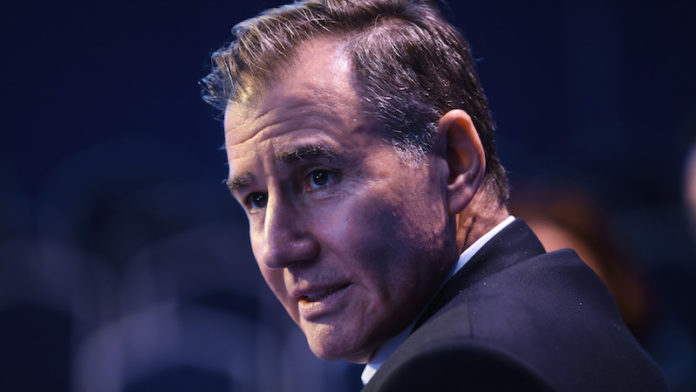
GLENCORE may raise its 15-year Scope 3 carbon emissions reduction target when it convenes an investor update on December 4, said CEO, Ivan Glasenberg.
In February, Glencore committed to a Scope 3 emissions reduction target of 30% by 2035.
Speaking at the Financial Times Commodities Mining Summit today, Glasenberg said: “We are reviewing all of our coal operations and we’ve got that figure today of a 30% reduction by 2035. We are doing a bit of work on it and we will see where we can get by 4 December on the Scope 3 emissions overall”.
According to the Greenhouse Gas (GHG) Protocol Corporate Standard, emitters have to control and reduce their GHGs, the so-called Scope 1 of the standard, as well as the emissions of their suppliers in a Scope 2 level of scrutiny. The more controversial element of the protocol is managing the emissions of end-users, or Scope 3.
In 2018, Glencore said it would cap thermal and metallurgical coal production at 150 million tons a year following discussions with shareholders over two-years. Glasenberg contended today that his company was the only mining firm to put a firm figure to Scope 3 emissions reduction.
But he stopped short of supporting the sale of the group’s coal assets whilst acknowledging Glencore would “seriously look” at its portfolio if it caused it to lose investors.
He was also critical of rival company transactions to rid themselves of thermal coal in a trade sale or demerger, as recently proposed by Anglo American regarding its South African thermal coal mines. South32, the Perth-headquartered company, is also on schedule to complete the sale of its South African thermal coal business by year-end.
This would merely ‘hand on’ the problem and potentially intensify carbon emissions as it would create the resources industry equivalent of a tobacco company, said Glasenberg. “It will have investors who are prepared to own it and then it will just expand. Then you won’t be helping the world with the CO2 emissions.”
“I think he’s absolutely right,” said Mark Cutifani, CEO of Anglo American when asked to respond to Glasenberg’s comments. Anglo American sold its domestic thermal coal mines in South Africa during 2018 to Seriti Resources, run by Mike Teke, a former CEO of Optimum Coal Holdings, a company in which Glencore was once invested.
“We made the point that a responsible transition meant you didn’t just sell assets on a whim,” said Cutifani. “We halved our footprint by selling to responsible users. The [South African] government was happy, the local communities were happy, and we worked with our customers to see if they were okay,” said Cutifani.
In announcing a demerger of the export focused thermal coal assets in South Africa, it had taken “… a lot of work with the government and to make sure everyone’s responsible. At the end of the day, shareholders have to make choices about the companies they are willing to invest in.
“We’ve made a decision: thermal coal this year is 1% of our EBITDA. For that noise, it’s better off we transition into those commodities that we think will really provide the returns for our shareholders,” he said.











